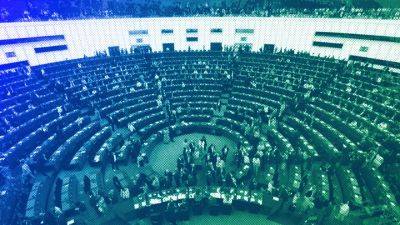‘Waste doesn’t exist’: How can we build sustainable industry?
The United Nations has 17 Sustainable Development Goals that contain ambitious objectives for member countries to meet by 2030. As of 2023, only 15% of these objectives were on track for success.
One such goal is Goal nine focusing on “sustainable industrialisation”. This idea seems oxymoronic when industrialisation is so historically linked with environmental damage.
In this episode of The Big Question, Angela Barnes is joined by Christophe Yvetot, the EU representative for the UN Industrial Development Organization, to discuss how countries can grow economically while still staying green.
“The wealth that we have is because we were industrialised. We all benefit from the services and products that are created every day,” Yvetot explained.
“So now the big challenge is to make sure that everything that is produced has the least impact on the environment.”
According to the European Commission, in 2022 alone, the EU produced 2,233 million tonnes of waste. Of that, 71% came from construction, manufacturing and mining and quarrying.
“The word ‘waste’ should be eliminated from the vocabulary because waste doesn't exist,” Yvetot added. “It's only raw materials that you haven't found a way to use.”
Yvetot wants us to rethink the way that societies engage with waste, insisting that this sort of ‘circular economy’ wouldn’t just have environmental benefits.
“We see not only that it decreases the cost of production, but also you create new jobs because instead of wasting or throwing away raw material, you use it to create new industries on this basis,” Yvetot said.
While sometimes it might be hard to see how all the sustainable goals can work hand in hand, Christophe emphasised that achieving one goal can have great benefits on other








